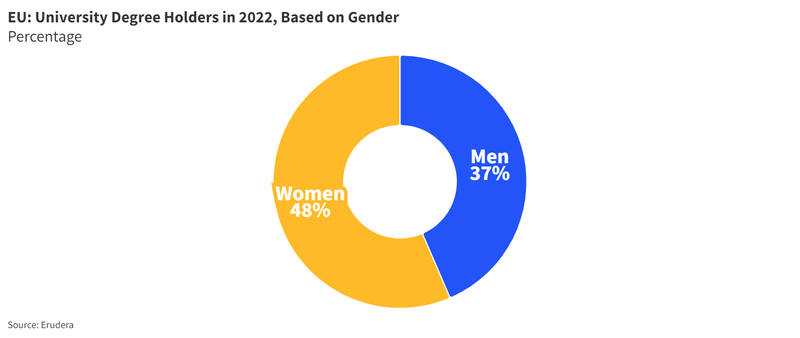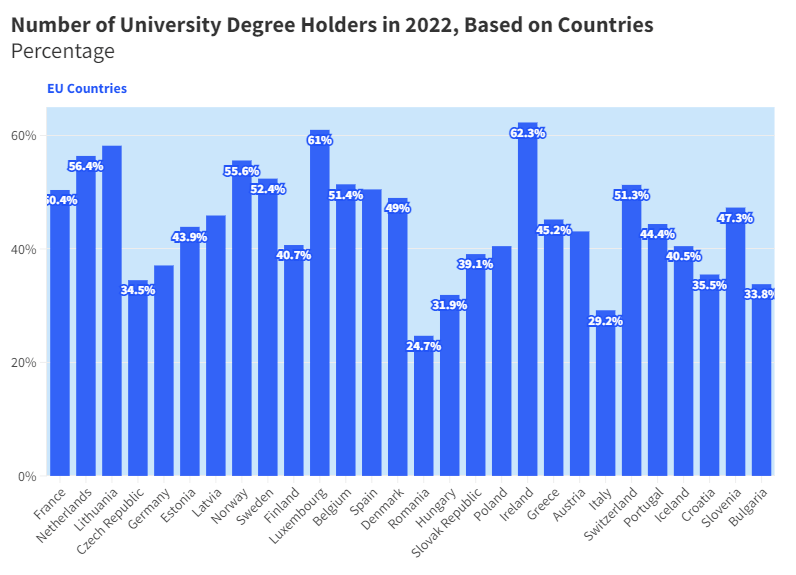European Women Surpassed Men in Attaining University Degrees in 2022, Eurostat Reveals
Ireland Europe Europe Higher Education News Statistics by Erudera News Jun 02, 2023

The share of women with a higher education degree among the EU population aged between 25 and 34 years was considerably higher than that of men in 2022, while the share of the whole population with a university degree reached 42 percent.
The European Office for Statistics, Eurostat, reveals that 48 percent of women belonging to the 25-34 age group in Europe held a university degree in 2022, while only 37 percent of their male counterparts did so, Erudera.com reports.

The same source shows that the number of people within this age group with a tertiary education degree has increased by one percent compared to 2021 levels when 41 percent of the population were holders of a university degree.
However, the goal for 45 percent of the EU population to have a tertiary education degree remains three percentage points behind despite some countries already reaching this goal. More specifically, the Western Europe region has a higher share of university degree holders compared to those in Southern Europe.
The most higher education degree holders are recorded in Ireland, as 62 percent of the population falls into this category, followed by Luxembourg (61 percent), Cyprus (59 percent), Lithuania (58 percent), and the Netherlands (56 percent).
In addition, a higher share of university degree holders is noticed in Sweden (52 percent), Spain and Belgium (both 51 percent) as well as France (50 percent), Denmark (49 percent), Slovenia (47 percent), Latvia (46 percent) and Greece (45 percent).
On the other hand, Romania and Italy have the lowest scores, with 25 and 29 percent of the population in these two countries, respectively, being university degree holders, while 32 percent of the population in Hungary have college or university degrees.

Germany, which is the main recipient of international students in Europe, has experienced a decrease in the share of people with a university degree in the last decade.
A study by the German Economic Institute (IW) has revealed that the percentage of professionals in the 25 to 34 age group that hold a higher education degree stood at 35.7 percent between 2011 and 2021, while the EU average between the same period is equal to 41.2 percent.
“If one looks at the persons with tertiary and secondary vocational education and training at the age of 25 to 34 years together, one arrives at a significantly higher share for Germany with 77.0 percent than for the EU as a whole with 73.4 percent,” the study shows.
In addition, the share of EU workers in the 25 to 64 age group that do not hold a university degree has dropped from 27 percent to 20.7 percent, recording a 6.3 percent decline during the 2011 and 2021 period.
Germany has witnessed a decrease in the share of people with a higher education degree and, consequently, an increase in the share of people without a higher education degree during the same period, which rose from 13.4 to 15.2 percent.
Recent Articles
United States
Apr 22, 2024
United States
Apr 22, 2024
United States
Apr 22, 2024
Australia
Apr 21, 2024
Switzerland
Apr 19, 2024


